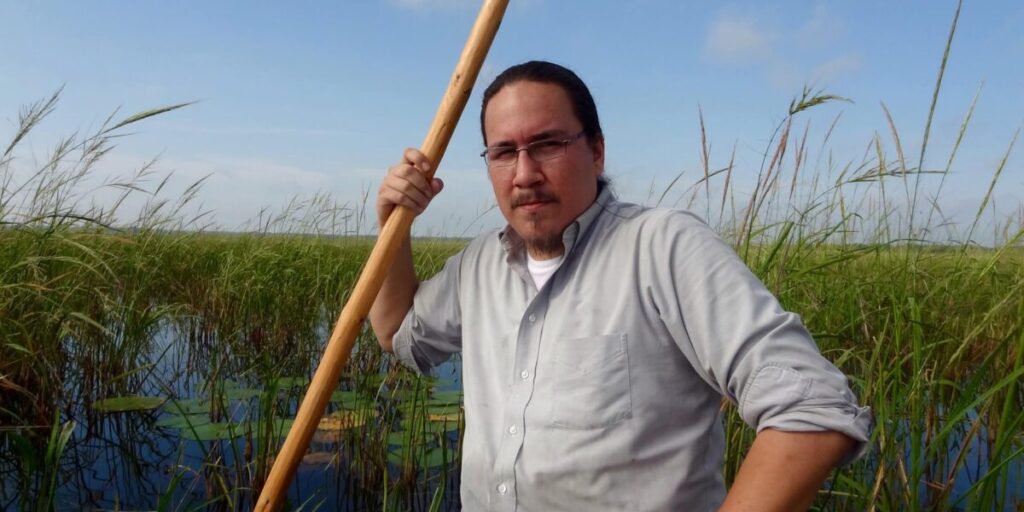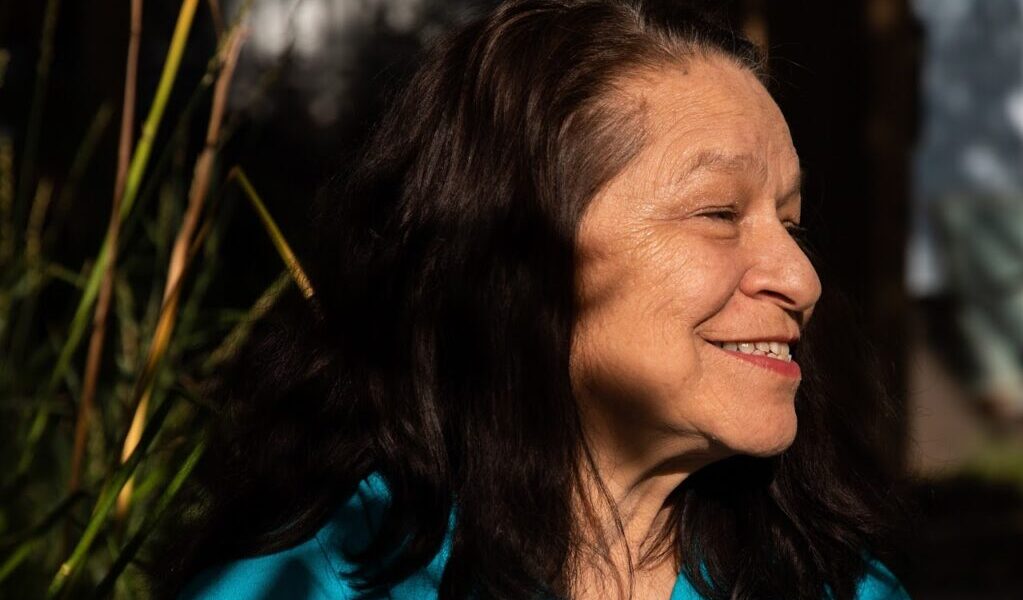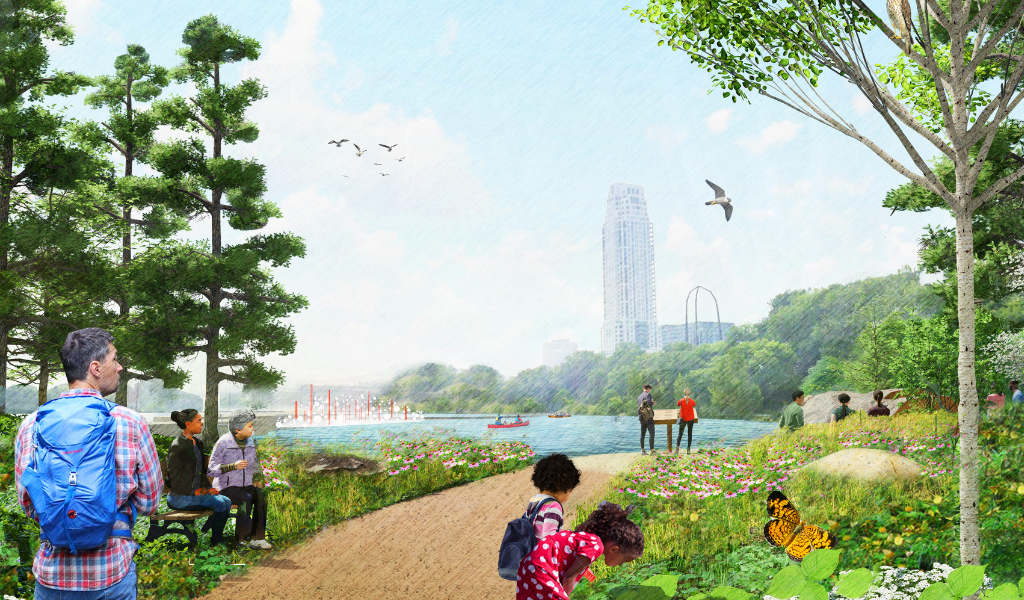
This week on Minnesota Native News, we revisit a story from May 2021 about Ojibwe Language revitalization in Minnesota. Here’s Emma Needham.
Emma Needham: Leslie Harper is a member of the Leech Lake Band of Ojibwe and has worked in language revitalization efforts on both a local and national level for the past 25 years.
Leslie helped to create an Ojibwe immersion school and the Leech Lake community in the early 2000s. Her community brainstormed and came up with an approach to bring back the language and culture together.
Leslie Harper: “We started planning what would a school look like in our community? What does education mean to us as Ojibwe people what we proposed was providing education through the medium of Ojibwe language, all subjects being taught in Ojibwe language instead of English,” said Harper.
EN: Leslie Harper is now president of a volunteer organization called the National Coalition of Native American language schools and programs.
When I took Ojibwe courses last year, Memegwesi Sutherland was my teacher. He teaches Ojibwe language courses and leads language tables a few nights a week via zoom for the Minneapolis American Indian center.
Memegwesi Sutherland: “I Learned Ojibwe when I was a kid, I was a fluent speaker. Back then, I had to learn English and French when I was a kid in schools. So slowly over time, because I grew up speaking Ojibwe, and living the old Ojibwe lifestyle. When I saw English speakers, I really envied them. So that’s why I kind of like I kind of left behind by the Ojibwe language and the Ojibwe teachings and how we live how I grew up. I wanted to be like everybody else like English speaking,” said Sutherland.
EN: Memegwesi was in his late teens, when he realized he could no longer reply back to his mother. That’s when he went to college to relearn Ojibwe.
MS: “So sometimes I kind of like, stay away from the body language, culture stuff once in a while. But that’s there in me because of the racism I experienced growing up. So sometimes it’s a battle to like to get past that,” said Sutherland.
EN: Teaching Ojibwe language is not what Memegwesi set out to do. But he believes that his experience teachings and conversations with people around him led him to that path. Language and Culture teachings often come from elders, as elders pass on, it impairs a community’s cultural and language capacity. This is Leslie Harper, again,
LH: “We’ve been at a critical need. And we said this 20 years ago, right, that we have a critical need to revitalize our language. Because we have, you know, a few 100 people. For me here at least late 20 years ago, we were able to say we have, you know, a couple 100 speakers. And that was a feeling of critical need and critical loss to us,” said Harper.
EN: Memegwesi Sutherland explained that his experience is that language revitalization is both getting better and worse at the same time,
MS: “Because of Zoom, we can connect with elders know over long distances, because before in order, if you wanted to see an elder you have to go to their place. And nowadays, because zoom you can just like hit them up like this, and then just be in a meeting,” he said.
EN: Memegwesi says that our ancestors and ceremonies are exactly the reason why people should speak Ojibwe, and that our ancestors are already ahead of us.
MS: “The reason why it’s important to speak to them because that’s who you’re talking to. You’re talking to our ancestors. And some people were afraid of what’s going to happen to their future when the elders pass on, you know like everybody thinks all the culture is gonna die off. But then we were told that the original teachers are the spirits and they said in the future when the younger generation brings back the language, they’re also going to bring back the spirits and the spirits are going to teach them again,” he said.
EN: Memegwesi leads Ojibwe classes and community language tables online and in person through the Culture Language Arts Network, or CLAN, which operates through the Minneapolis American Indian Center. For more information about their language class offerings, visit their Facebook page.
For Minnesota Native News, I’m Emma Needham.
More from Minnesota Native News
- Indigenous Author Publishes Book of Anishinaabe Poem-Songs
 Marcie R. Rendon released her first book of poetry, “Anishinaabe Songs for a New Millenium.” The book launched at Birchbark Bizhiw in Minneapolis last Tuesday, July 16th. Two Anishinaabe musicians joined Rendon for a unique reading that combined music, poetry, and culture. CJ Younger: On July 16, Birchbark Bizhiw was filled with music and conversation …
Marcie R. Rendon released her first book of poetry, “Anishinaabe Songs for a New Millenium.” The book launched at Birchbark Bizhiw in Minneapolis last Tuesday, July 16th. Two Anishinaabe musicians joined Rendon for a unique reading that combined music, poetry, and culture. CJ Younger: On July 16, Birchbark Bizhiw was filled with music and conversation … - Headlines 7/18/24This week, two examples in Minnesota that support the larger “Land Back” movement across Indian Country, Mille Lacs Band of Ojibwe’s new Chief Executive, urban Native-led organizations celebrate during a collaborative open house, and a new tribally operated recreational marijuana dispensary now open in Minnesota. LEECH LAKE NATION CELEBRATES RECLAMATION IN LAND TRANSFER Over 11,700 …
- Owámniyomni Restoration Moves Into Design Phase
 This week, we’ll hear from the newly appointed Dakota-led design team supporting the restoration of Owámniyomni, also known as St. Anthony Falls. The team has plans to transform the Minneapolis site into a space that centers the land and its Indigenous history. Reporter CJ Younger has more on the story. CJ Younger: June marked an …
This week, we’ll hear from the newly appointed Dakota-led design team supporting the restoration of Owámniyomni, also known as St. Anthony Falls. The team has plans to transform the Minneapolis site into a space that centers the land and its Indigenous history. Reporter CJ Younger has more on the story. CJ Younger: June marked an …
Subscribe to Minnesota Native News in your favorite podcast app

 Dr. Laurelle Myhra: Director of the Mino Bimaadiziwin Wellness Clinic
Dr. Laurelle Myhra: Director of the Mino Bimaadiziwin Wellness Clinic